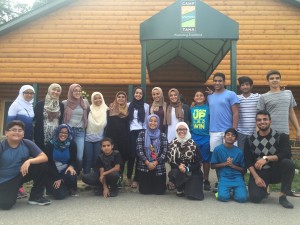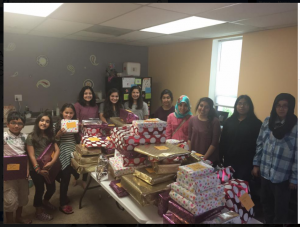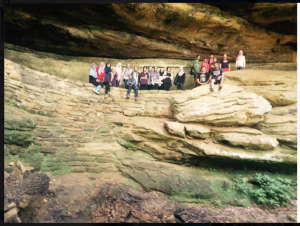As I prepared to graduate college and start medical school, I decided to start a youth group at my local mosque. I had immigrated to the United States with my family five years ago and the struggle of holding on to my identity while trying to assimilate in the new culture was still fresh in my mind. Yet, through resilience, open-mindedness, and self-reflection, I had overcome the pressure of trying to “fit in” and had come out of high school and college with a strong sense of who I am and what I can offer to the world. As I saw the youth of Muslim-immigrant families at my local mosque struggling with their identity, I wanted to provide them a platform where they could explore their unique self, their talents, and find value in giving back. With the overwhelming expectations of medical school approaching me, I wasn’t sure if I could fulfill my duties towards this newly born youth group. But I knew that my life would remain deficient if I only devoted myself to medicine and gave-up on my passion for youth and community. Hence, I recruited a board of high school students to help me run the youth group and I became their advisor.
I still remember the glittering eyes of my board members at our fundraising banquet at the end of our first year. Pictures of laughter danced on the projector as we screened photographs from our year’s events including a movie screening at the local movie theater, a zoo trip rooted in team building activities, card making for the sick, a painting competition, and bonfire. In making these events successful, my teenage board members had helped make venue reservations, collect RSVP and ticket money, develop game ideas, and create graphic fliers. Yet they had required a lot of coaching through the year in accomplishing these tasks and I could not stop smiling as I saw the final product: a group of youth who were now confident in their potential and ready to take on greater projects. Remaining involved with the group, conducting weekly meetings, and executing monthly events had often been challenging with the rigor of medical school. But through trial and error, I learned to strike a balance between the two. I ensured that no events were scheduled during exam week and I allotted specific hours in my day to carry out youth group related work without letting it distract me during my allotted study time.
This ability to compartmentalize my time also helped me in my personal life. I scheduled a couple of hours every weekend to spend with my family and planned my weekend studying around it. I even learned to set out time for gym and painting. Finding work-life balance did not come to me naturally. It required constant evaluation of my involvements and values to prioritize what mattered to me the most. It required that I communicate with my family and youth group members, ensuring that they understand my commitment towards my career and towards them. I realize that balancing career and personal life is not static but a constant process. As I start residency, my responsibilities and commitments will change and I will need to adjust my life accordingly yet again. I am optimistic that my strong sense of personal values and the ability to compartmentalize my time and prioritize my involvements will help me achieve work life balance in every stage of my career.




